The UK right to strike to be revoked
In the UK, while union leaders hold protests outside 10 Downing Street, MPs are debating legislation which would see striking workers in key sectors legally required to provide a minimum service.
Why is the UK trying to take away a basic freedom granted under Western democracy, the right to strike and the freedom of assembly?
The strikers have said they will fight tooth and nail to protect the right to strike.
We shall look into why the UK believes that it can prevent the right to strike at home yet encourages people in other countries, such as the Islamic Republic of Iran, to go on strike and even encourages them to commit acts of violence.
This proposed bill is ultimately going to take away the right to strike for the people in the UK. It is unclear in what way it is it going to do that once it's passed, since there seems to be some sneakiness involved in how the UK Government is approaching this issue.
Well, the British government is guilty of breathtaking double standards. There's two pieces of legislation they're seeking to push through at the moment, one relates to freedom of assembly, the Public Order Bill, but they're also pushing through a bill, as you mentioned in your introduction there, which will limit the right to strike for trade unions.
The so called Strike Minimum Service Level Bill, which will limit the right to strike in various sectors like the health sector, Fire and Rescue Services, education, transport and border security etc. And, you know, whilst we've got politicians kind of lecturing other countries around the world and standing up in support of protests in different parts of the globe, here in Britain, they're seeking to clamp down on the very rights which they claim to advocate.
So as I say, it is a real grotesque case of breathtaking double standards. And yeah, I don't think the trade union movements or indeed civil societies, are in any mood actually to accept this and regrettably both sides of the chamber in the House of Commons...
Well, you got the government, which are obviously pushing this legislation through but you know, the opposition's position is fairly lukewarm. And so I think the opposition lukewarm on this.
Chris Williamson, Former Labour MP
Why is the opposition lukewarm on this?
Well, I mean, we've seen a very different direction that's been taken by the Labour Party since the demise of Jeremy Corbyn and after he stepped down as leader of the Labour Party, and was then suspended from the party and the new leader, Sir Keir Starmer and his cohorts, very much model themselves on Tony Blair, and you know, I mean, a lot of people see that as a paler version of the Conservative Party.
So I think the way in which we will defeat this legislation is through action on the street through mass movement so that that we can rely on the political class in the Houses of Parliament to actually do the job for us.
Chris Williamson, Former Labour MP
One of the bills is looking at the fact that lives are at risk and says that it was needed, based on the way that it was presented by the government, because in recent months we have seen a flare up of strikes, essentially, putting people's lives at risk.
But then you have people like the firefighters who have said: "you got rid of 12,000 firefighter jobs, never mind the safety on the days that we're on strike, what about safety on every other day of the year?”
So you can see that there is this schism there based on this particular statement by the firefighters. Do you find this legislation acceptable?
No, this is like a schism describing the difference between a molehill and Mount Everest and saying, look, they're both have got humps on them.
The government has literally killed, or allowed to be killed to be precise, tens of thousands of people through the neglect of the NHS, through its policies on COVID alone, which was responsible for hundreds of thousands of deaths, and there is no evidence that anybody has died on any strike day because of the fact that the strikers make sure that for the most life threatening situations there is cover.
This talk about minimum cover is a complete fake because the unions have never had to put themselves in a situation in which they are withdrawing covering in which there is life threatening situations. And so what the unions say there is absolutely correct on this, it is not a schism at all. What it really shows is the problem with government ... Britain has survived for hundreds of years without this legislation, this type of legislation.
The reason that they go out now is because so many people are opposed to what they're doing. So because they're no longer facing a situation in which you've got some thousands, or tens of thousands of people, they are confronted now strikes which regularly have 100,000 people involved, but if you took (away) the strike label it is going to involve millions of people.
They are facing such big opposition they are forced to take authoritarian measures and they are the people who bear the responsibilities for these deaths.
John Ross, Senior Fellow, Chongyang Institute for Financial Studies
When we consider the strikes that happened last year, as an example, 417,000 working days were lost in October. The Office of National Statistics states that 205,000 working days were lost in September, the worst strike since 1990, with 1.1 million working days lost to industrial action since June.
What the UK Government is doing, based on this proposed new legislation, is giving employers the option to fire workers and then sue trade unions, is it not?
That's certainly the direction of travel that they are taking, we are already seeing the firing and rehiring of workers. And what the government, despite their sort of weasel words, when we saw some pretty gratuitous examples of that last year, I mean, they're seeking to make it even easier for employers to, literally, exploit workers to an even greater extent than they already are.
We have got 14.5 million people in the UK living in poverty already and precarious employment is now endemic throughout the land and the only way in which workers can protect themselves is by combining together and forming trade unions and, obviously, what the government is seeking to do is to make it more difficult for people who want to join a trade union and then when unions are representing the workers to make it difficult for the unions actually to effectively represent their members.
I mean, you know, the archaic way in which unions are expected to undertake a postal ballot in order to secure support for any industrial action, I mean, it's absurd, particularly in the modern age when we have access to new technology, and this could be done in a much more swift and more democratic way, actually.
So they're trying to put obstacles in the way, it seems to me, of organized labour and they very clearly are working in the interests of corporate capitalism. Let's be clear about it , you know, the global corporations that is whose side they are on and I regret to say that, you know, the opposition is pretty much in the same ballpark as the Conservative Party.
I guess there'll be, you know, modifications at the edges, but ultimately, that's where the political class's priorities actually lie. They lie in the support for corporate capitalism, not in standing up for the interests of the people who actually elect them, the vast majority of the 99%.
Chris Williamson, Former Labour MP
The sectors that we're looking at here are the NHS, railways, education, fire service and border security. Some question what these strikes will achieve other than hurting the economy and assert that we should let the government do its job and come up with a solution, and that the strikes are not going to get anywhere, what is your response to that?
Well, there are several things; firstly, the strikes themselves are greatly influencing public opinion. All the opinion polls show that the strikers, in general, have the support of the public and in some group case, nurses, they have absolutely overwhelming support to the public, and other groups have got support ... the rail workers, etc. for example.
Secondly, this is very, very necessary in order to defend people's lives. There was a very interesting article in one of the papers today noting the fact that the health situation in the country has got so bad that it's very seriously affecting the economy. Because you've now got a situation which you've got a huge increase in sickness, we already know that the workforce has fallen by about 500,000 since before COVID, that's due to all the people suffering from long COVID and the effects of COVID. And you've now got a situation where people are taking more time off because they're ill. So in other words, it's having a very negative effect on the economy.
So the point is, it is necessary to fight back against this. The thing which I'm afraid I agree with Chris on is (that) the government is so unpopular now that I'm pretty sure that it's going to lose the next election, and what it's relying upon is the fact that the Labour Party won't repeal this legislation. It's verbally said it will but they believe they won't do it in practice, and it will continue with the same policies because that will, of course, make the next Labour government itself drastically unpopular. And so then we know another conservative government would do something worse.
So, on the contrary, these protests is the only way that people can fight back ... and they're not acting really in their own interests. They're acting in the interest of everybody; we've got massive shortages of workers in the health service, doctors, nurses, etc, because they've been paid too little.
John Ross, Senior Fellow, Chongyang Institute for Financial Studies
There is a campaign called "Enough is Enough" which asserts that the right to strike is under threat and that the new legislation will override the workforce's right to withdraw their labor, forcing them to work against their will.
And most importantly, that it's not a coincidence that this fundamental right is under attack at the very moment that they're trying to fight a cost of living crisis and the squeeze that they're feeling.
I very much do agree with that. And the "Enough is Enough" campaign has really captured the imagination of the public. I think the last time I looked we've got nearly a million supporters. So you know, clearly they've tapped into a nerve amongst the British public.
People are sick and tired, frankly, of the poor conditions, you know, the high rents that people are expected to pay, the precarious employment, the lack of opportunity, the deterioration of our public services, the fact that young people are saddled with massive debts if they have the temerity to get a higher education at university and come out with, you know, 40, 50, 60, 70, 80000 pounds in debt then it's difficult for them to find accommodation in which to live. Rents are very expensive, almost impossible in most parts of the country for young people to get a foot on the housing ladder to buy their own home and public housing is virtually nonexistent as a result of policies that have been pursued over the last four decades.
But as far as the legislation is concerned in relation to trade unions, let's remember when New Labour came into power in 1997, they did make some modification to the anti trade union legislation that had been pushed through by Margaret Thatcher and John major's governments. But what Tony Blair was groaning about was the fact that even after the changes and modifications that they were going to make to the anti trade union legislation, what Tony Blair said is that Britain still had the most restrictive trade union laws in the western world, as if that, somehow, was a good thing.
So I think John's absolutely right, that it's very unlikely that, if indeed the Labour Party do win the next election, that they will do very much to actually repeal the legislation, which if indeed it does get into the statute book, which is being pushed through right now.
But talk is cheap, actions speak louder than words, and the fact is that the front bench, the Labour front bench, have been banned by Sir Keir Starmer to show their solidarity, to show their support for the striking workers, the nurses, the the Transport Workers, the postal workers.
Chris Williamson, Former Labour MP
What has the government done so far? They're not reaching an agreement with the different sectors that are striking that have government pay. They have proposed some increases but it's not enough.
- It took months to arrange, but only hours to fail. Negotiations between unions and the UK Government
The "enough is enough” campaign has said: "the government is determined to force workers to pay the price for a crisis caused by the greed of the elite, yet again". Do you think that accusation is justified?
“Enough is Enough” is a good campaign, There are other campaigns as well, the People's Assembly, and others, are campaigning against austerity, the whole series of campaigns and trade unions on this, of which "enough is enough" is one.
All the statistics show that at the present time, the rich are getting richer; this is not just a slogan. Wealth has been greatly increased for the billionaires and millionaires. The income differentials has increased at the same time as literally millions of people are suffering cuts and millions of people being forced into extreme poverty, virtually everybody outside of the top sort of, you know, few percent of the population is suffering cuts in living standards. Nevertheless, the most wealthy in the country have got better off.
The government is not merely doing nothing about it, it's genuinely attempting to create such conditions, and therefore that's why it's in a big mess. So people are striking back against this, because it's not a case that everybody's in the same boat. We're not all in the same boat.
And what then the new thing which is getting the government is that they're hitting people who have never got any history of militancy at all, and the Royal College of Nursing has not had a strike for 100 years. In fact, it's the first strike in its 100 year existence.
Criminal barristers have been on strike in addition to what you might call the union strike, such as rail workers, this is touching extremely wide layers of the population and that's why the government is so worried about it and why it's taken such authoritarian measures in the situation.
They are attempting to claim this is due to some small group of extremists but with all the data of those involved, and the groups of people involved, so it's absolutely not, very wide sections of the population are completely fed up with the situation.
John Ross, Senior Fellow, Chongyang Institute for Financial Studies
There are also different aspects of this bill that do target different movements, groups such as Black Lives Matter, Extinction Rebellion, Just Stop Oil, just to name a few.
They are accused of having used "disruptive tactics" in order to bring attention to their slogans which are basically protests against the government.
Are they trying to just sweep their problems under the rug for it not to be highlighted?
Absolutely, rather than actually addressing the concerns which have been articulated by the groups that you've mentioned, what the government is trying to do is to shut down those protests to, as it were, sweep away the potential embarrassment that they cause the government by drawing attention to their failings and certainly there is very real concern because you know, these powers are quite draconian, ... the right given to the police to stop protests in their tracks, to increase the powers of stop and search, to criminalize what they refer to as "locking on" the sort of tactic that was used by the suffragettes well over 100 years ago to secure votes for women.
These sorts of activities will be criminalized. And there is a real fear, already black people are targeted and are subject to the sort of draconian powers that the police already have at their disposal in terms of stop and search, and this is going to increase and I think black people in Britain are likely to be targeted to an even greater extent. So it's really crucial that we do build this mass protest, this mass opposition, to what the government is doing and really force political change, force the Labour Party, frankly, you know, to speak up and actually do what they are supposed to do, to represent the sort of progressive interests in this country.
It's a tragedy frankly that, you know, the direction of the Labour Party has taken of late and that's why it's encouraging to see movements like "enough is enough" and other protest movements really, you know, stepping up and taking to the streets in numbers that we've not seen in this country for decades.
Chris Williamson, Former Labour MP
It's very disconcerting that the UK Government is passing such legislation while at the same time, encouraging protests in other countries. You can't have a TV station that you're funding and ask them to encourage protesters to come out, to incite violence, as they did in Iran.
Well, yeah, to understand the so called free speech in the West, you have to understand the situation, if you're discussing something which really doesn't matter very much or you're tiny, that is, you don't influence the situation or you're discussing something which is not very important, then you can have free speech.
If you have very powerful positions, or you're discussing something which is extremely important, then you get a clamp down on free speech. That's always been the rule.
If you want a big discussion in Britain, should we drive on the left hand side or the right hand side of the road? I'm sure it won't be interfered with ... it won't affect anything very much except in practical terms, if you want to discuss wars, or you want to discuss or defend your standard of living, then yeah, then the free speech will be clamped down upon, that's always been the case and it remains the case, which is why there isn't real free speech in the west at all.
John Ross, Senior Fellow, Chongyang Institute for Financial Studies
Briton's turn to pet food amid the cost of living and energy crises
Kata’ib Hezbollah calls on resistance fighters to prepare for 'war' in support
Israeli warplanes conduct new aggressions across southern Lebanon
Democrats threaten govt. shutdown after second ICE killing in Minneapolis
MSF to disclose limited list for Gaza staff after Israel revoked its aid licenses
VIDEO | India defies Western push at UN Rights Council on Iran
Cuba's president observes drills, vows high cost for any US aggression
Iran dismisses Nazi-style propaganda on riot death toll
Israel kills more civilians in Gaza amid relentless ceasefire violations


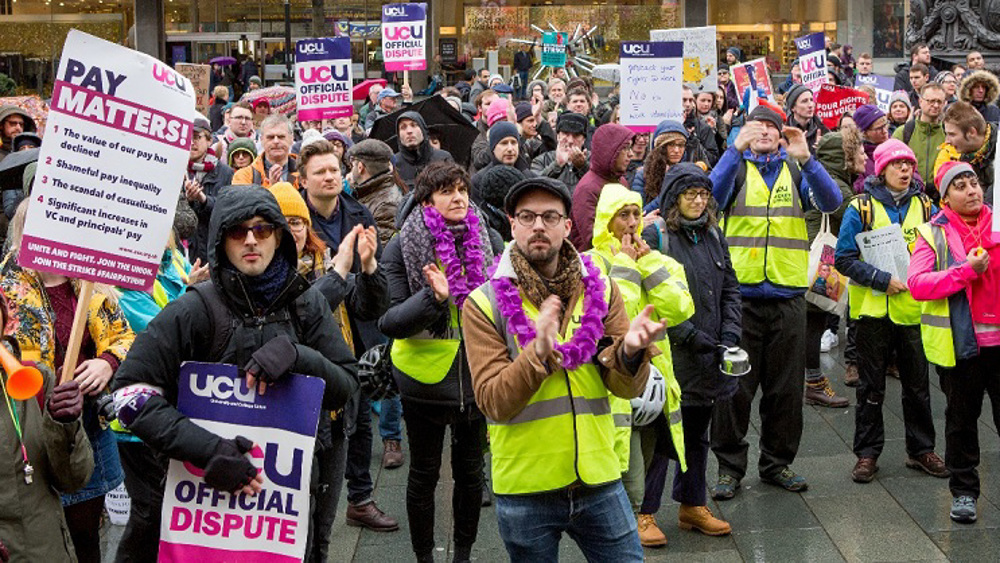
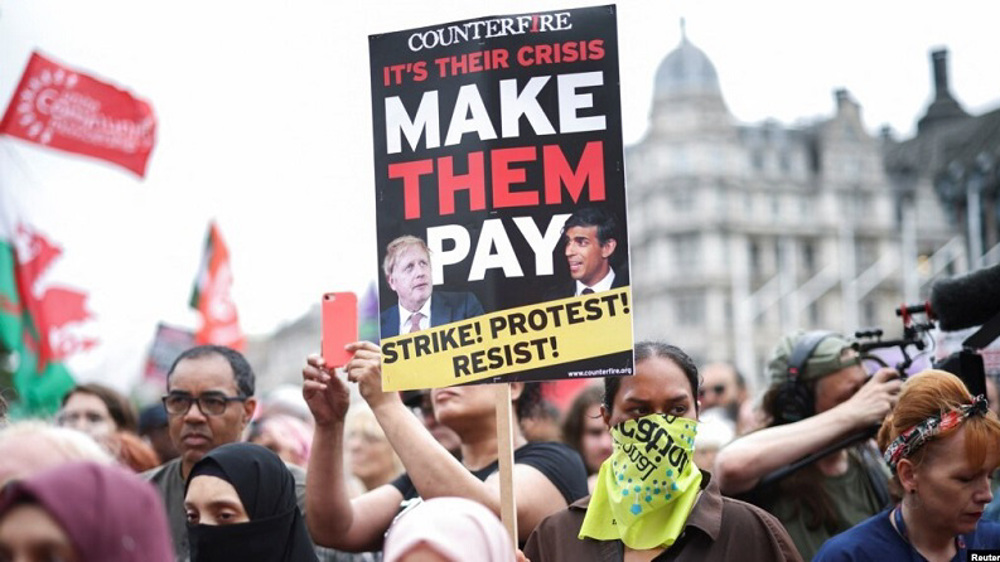
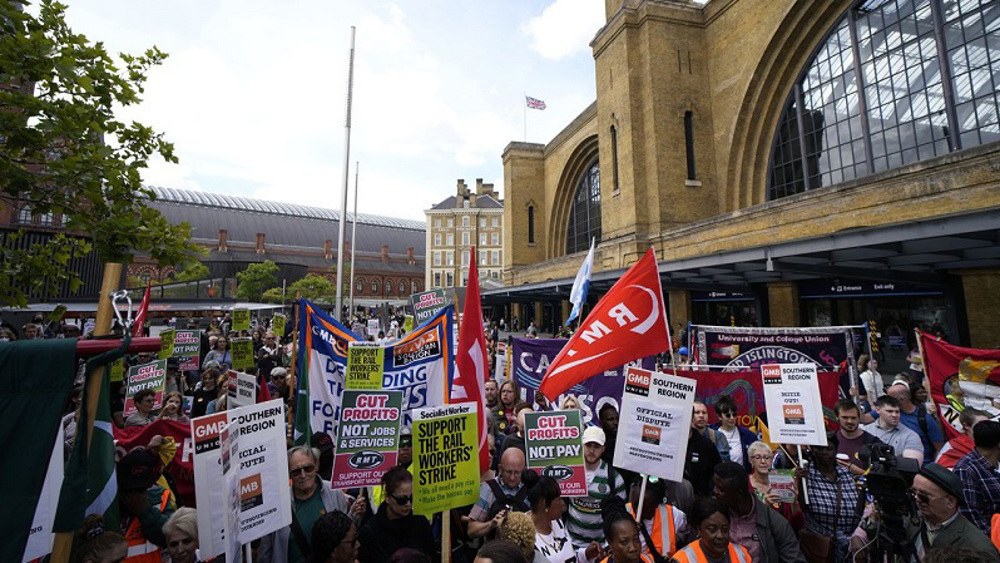
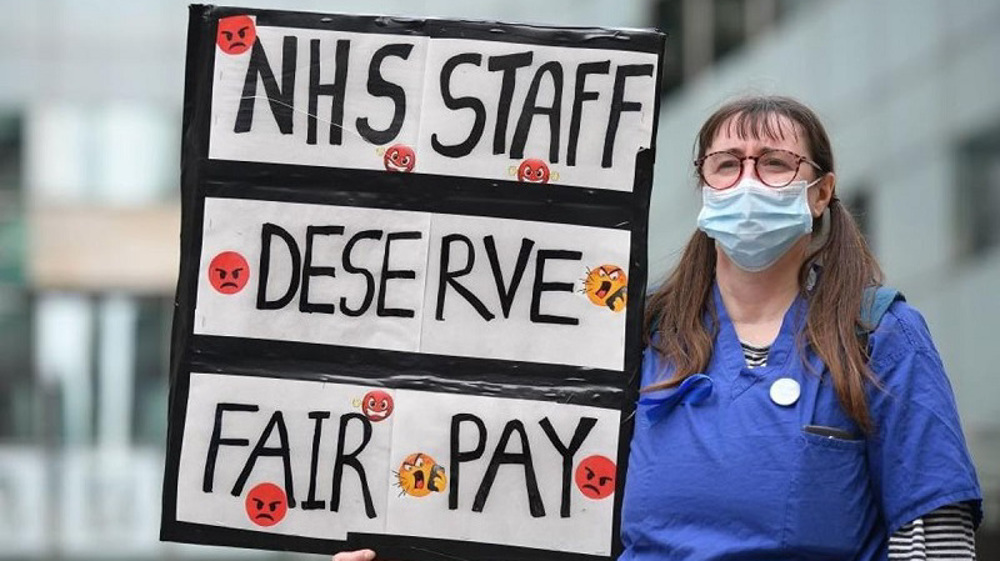
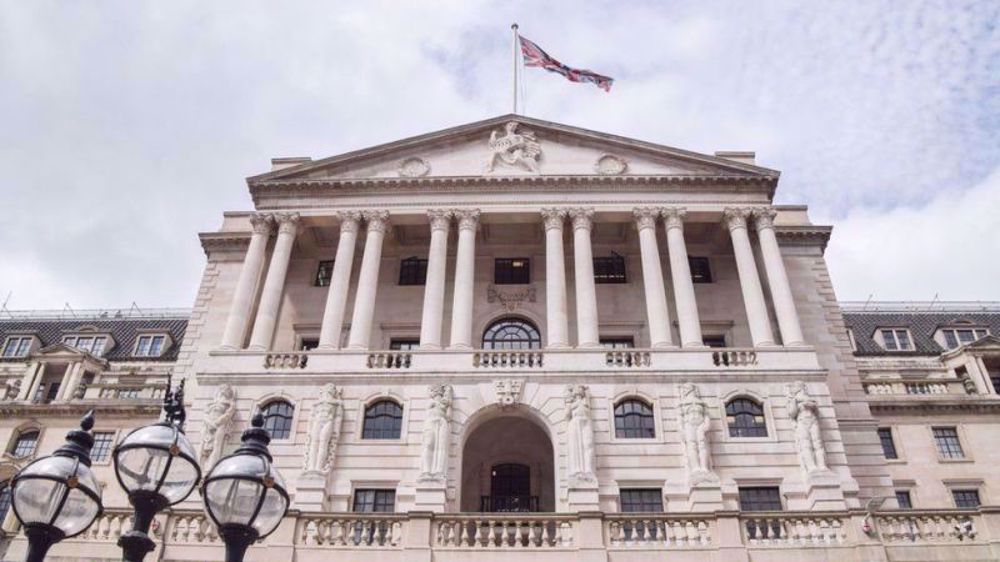
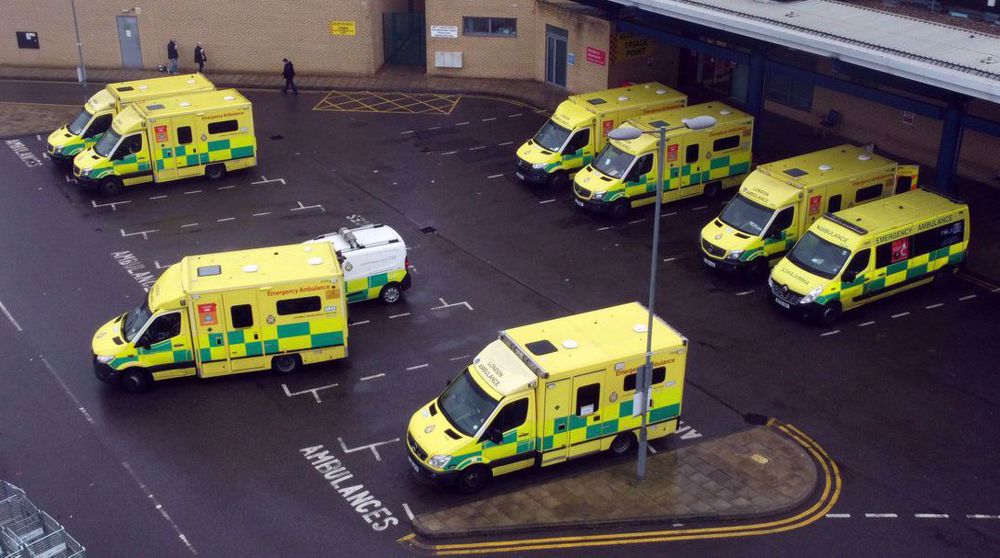
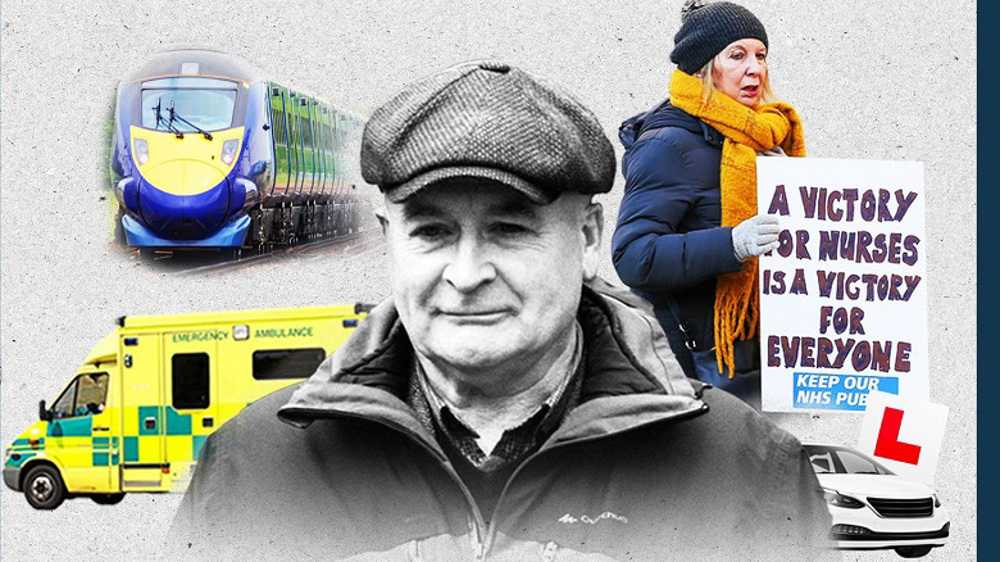
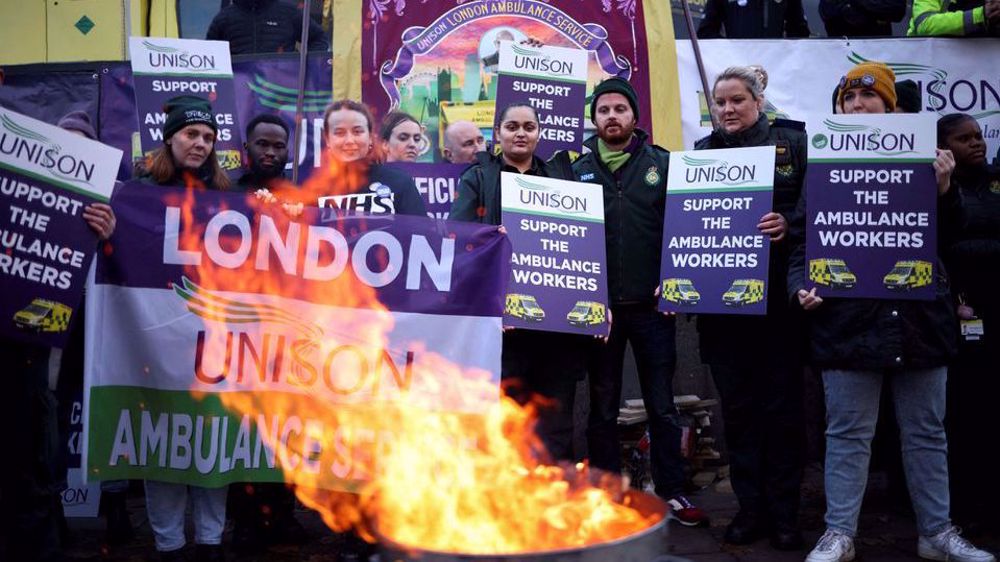


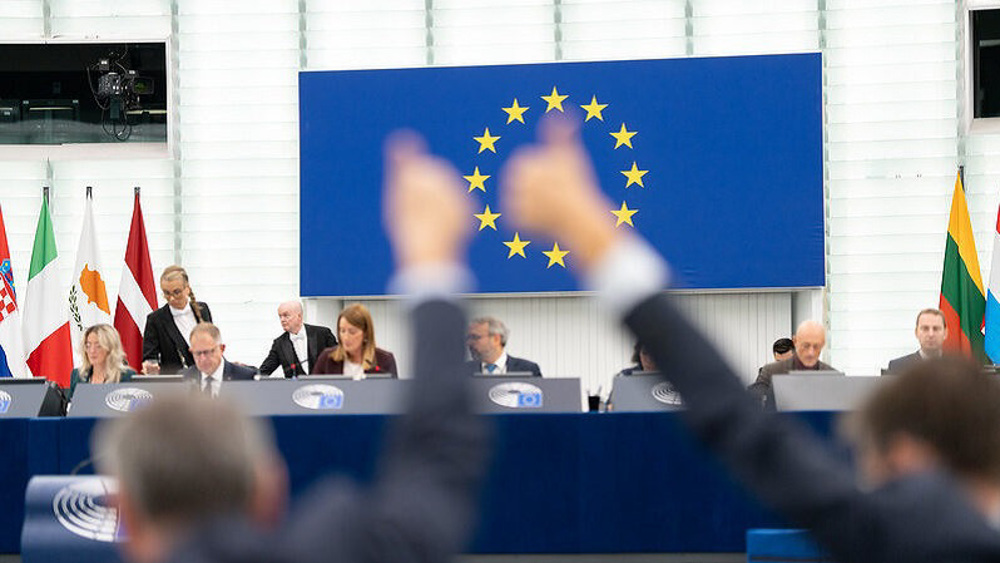
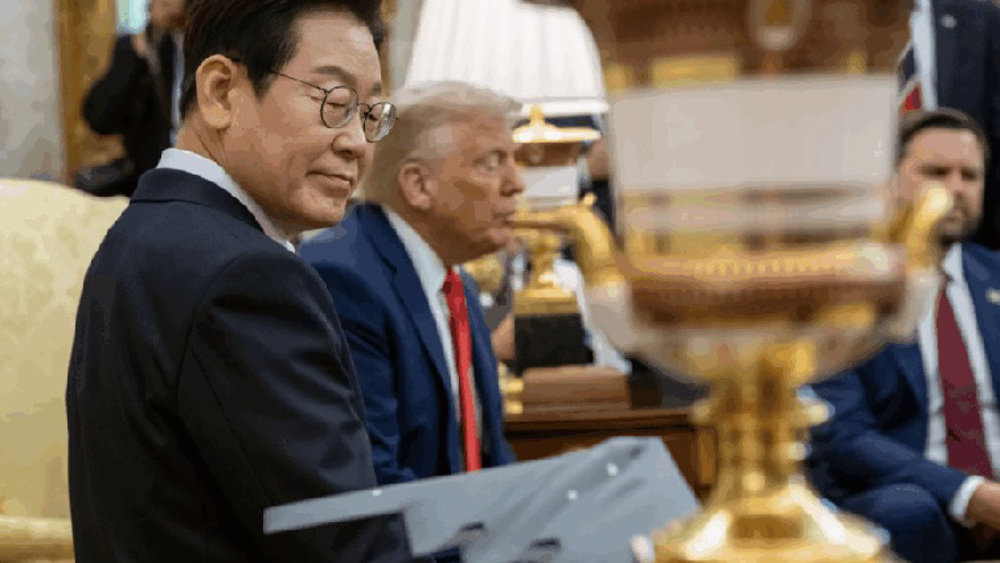



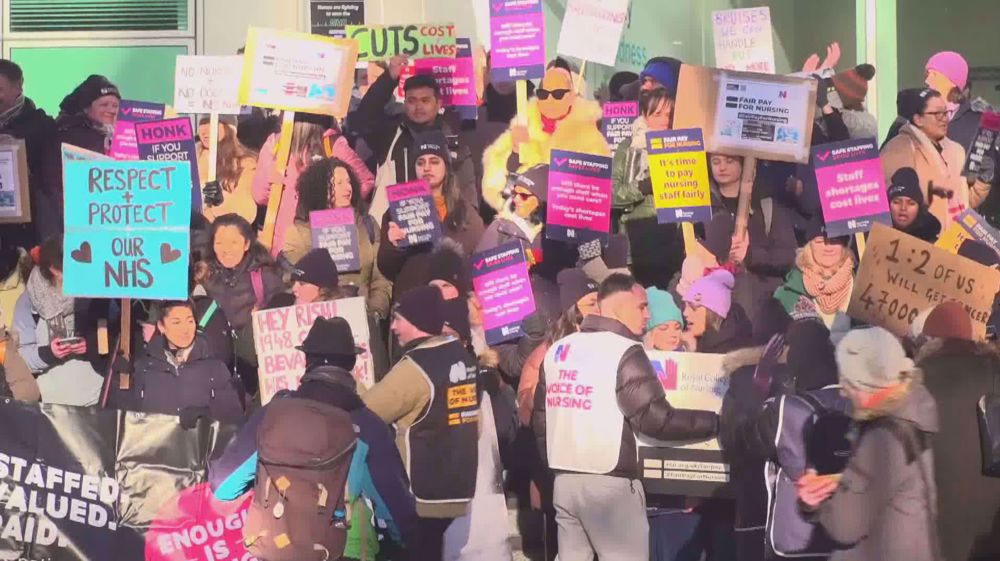
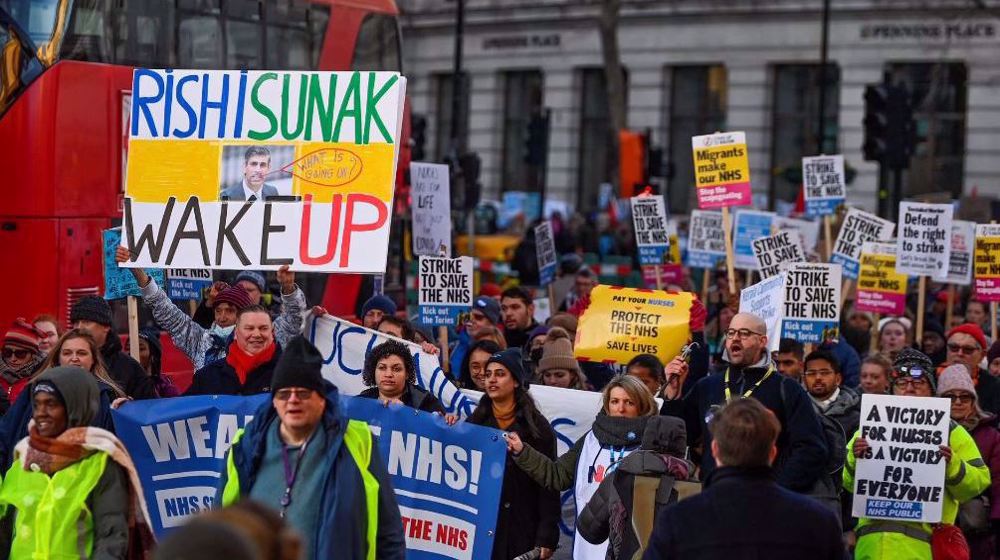
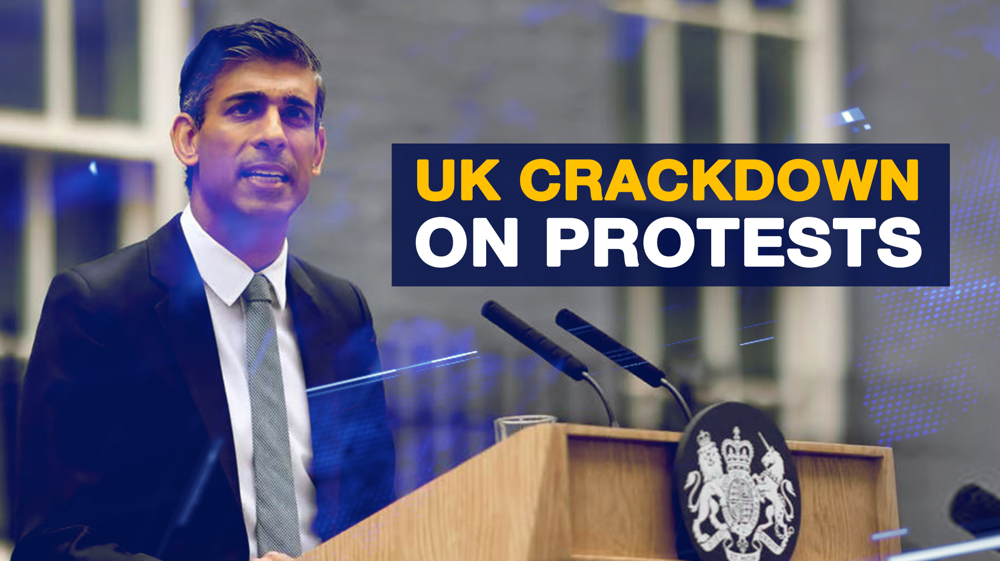
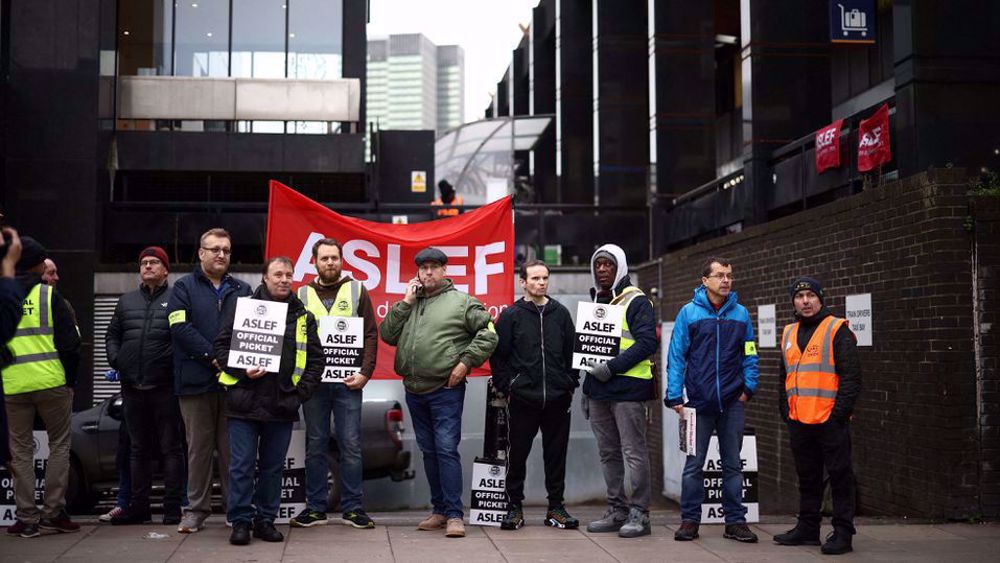
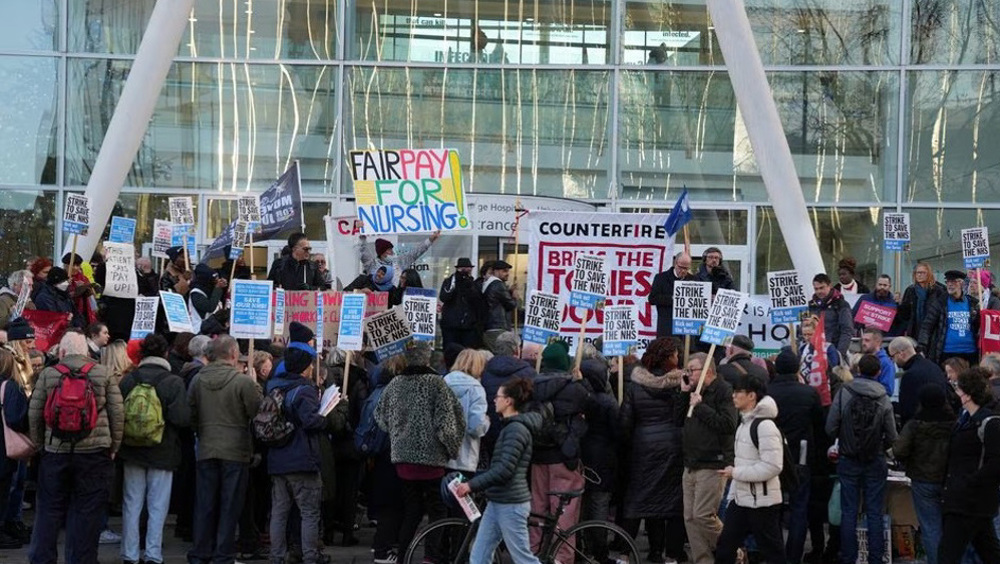
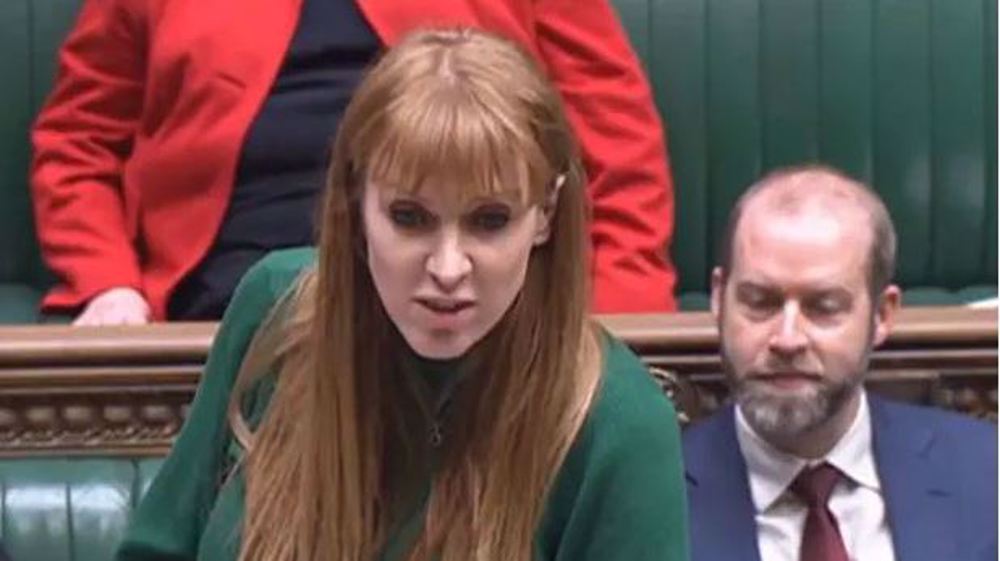
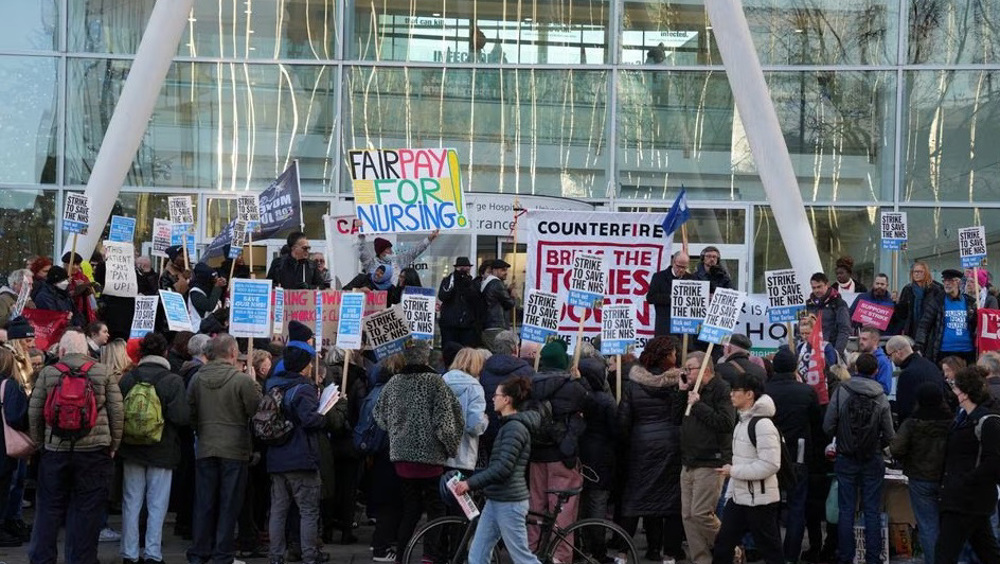
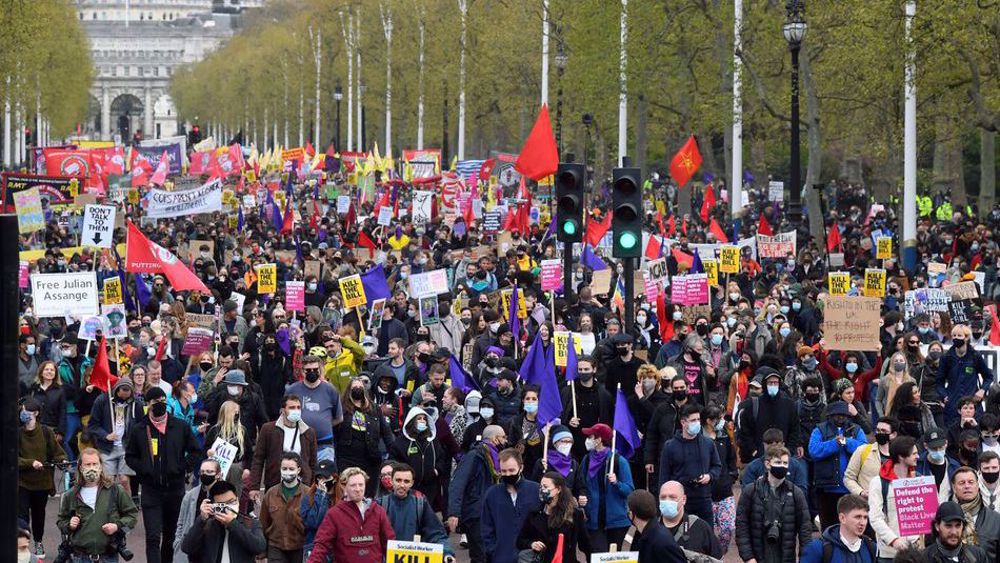
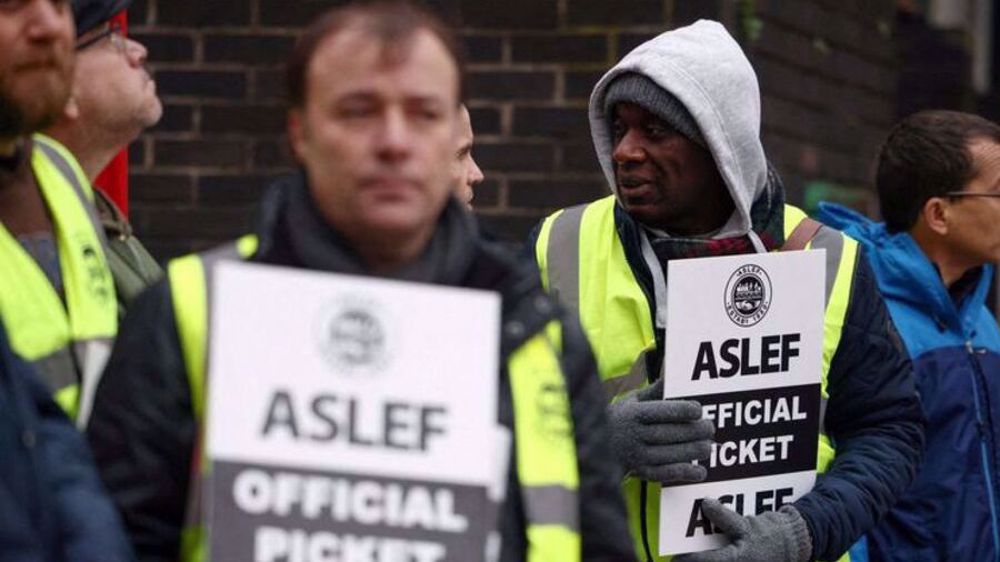

 This makes it easy to access the Press TV website
This makes it easy to access the Press TV website